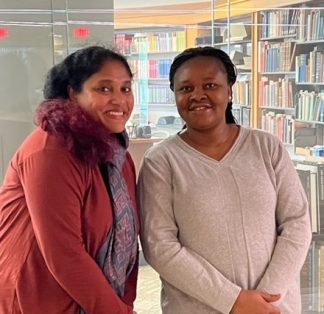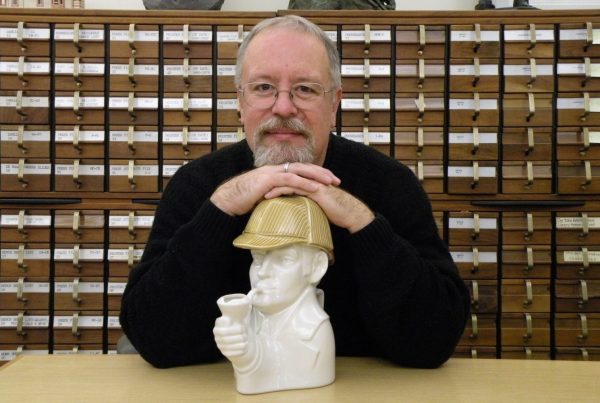By Sandra Ayivor
Spotlight on Research: Guest author Sandra Ayivor was awarded the Immigration History Research Center Archives (IHRCA) Grant-in-Aid Award this year, and she visited Andersen Library for five days to study the research topic of post-graduation migration choices of students. Sandra Ayivor is pursuing a Ph.D. in Higher Education at West Virginia University.
Highly educated individuals are needed for the development of every country’s economy. African countries have been struggling with brain drain in all its forms because of high levels of migration. Many students also travel to study abroad and do not return, although research has shown that their initial intention was to return to contribute meaningfully to their economies. Responding to the human resource issues of Africa requires leaders to understand what really influences post-graduation plans of those who earn a doctorate, which is the highest academic degree.
In this research, I intend to identify and understand the factors that influence the post-graduation migratory decisions of this most-needed, highly skilled labor force in sub-Saharan Africa. The study is necessary because it adds to the knowledge about international students regarding where they decide to reside post-graduation. Furthermore, it is hoped that the results of this study will inform leaders in both the host nation and the country of origin to implement policies that may gradually reverse this phenomenon of brain drain.
As I began my research in the United States, I was amazed at the service I received upon arrival at the University of Minnesota Andersen Library and the Immigration History Research Center Archives (IHRCA). At my request, three full carts of archival materials and books were provided for my perusal. These materials included folders on refugees from Africa dating from 1966 to 1968 put together by Dr. Norris Wilson, located in the U. S. Committee for Refugees and Immigrants records (‘Refugees in Africa,’ box 1, folders 1 and 2).
I was struck by some statements in these folders: “The refugee not only has problems – he creates problems (p. i)” and “Africa’s ‘image,’ in the Western World at least, gives little hint what her tumultuous life is providing these highly generative group of people. Through the experience of becoming refugees, terrible as it is in so many ways, many of these people will become ‘leaven’ in the nations that have given them asylum (p. iii, 4).”
I found this striking because often, immigrants are considered as no good to both their countries and the host nation. For refugees, they may be perceived as troublemakers; however, this foreword points to the fact that, through their experiences, they become an asset to the host nation.
In folder 2, which focused on Southern African student migration, all individuals who left their country to seek opportunity abroad were considered refugees. The author stated: “It is in my judgment that whether a man is forced to leave his country because of political activity or simply comes out in search of educational opportunity, he is a refugee. His departure is a violation of the law and he is, therefore, treated as a ‘rebel’” (p. 6). Such notions of the foreigner were quite disturbing because it had the power to inform the relationship between citizens and non-citizens. I also found documents on how entrenched brain drain has been, and how efforts have been put in place to respond to this phenomenon, which are useful to me.
I wish to express my sincerest gratitude to IHRCA for the assistance they offered for my research. Through this initial collection of data, my understanding about the experiences of immigrants was broadened. Although my focus was not on immigrants, I found some interesting threads which were applicable to the experiences of foreign students from Africa. The articles, letters, and other archival materials threw light on the current experiences of individuals who may want to stay in the United States, and the hurdles they often have to overcome to achieve their dreams.
Most importantly, the research experiences I had during my five-day intensive visit will not only inform my current research but serve as a foundation for the development of other studies.





